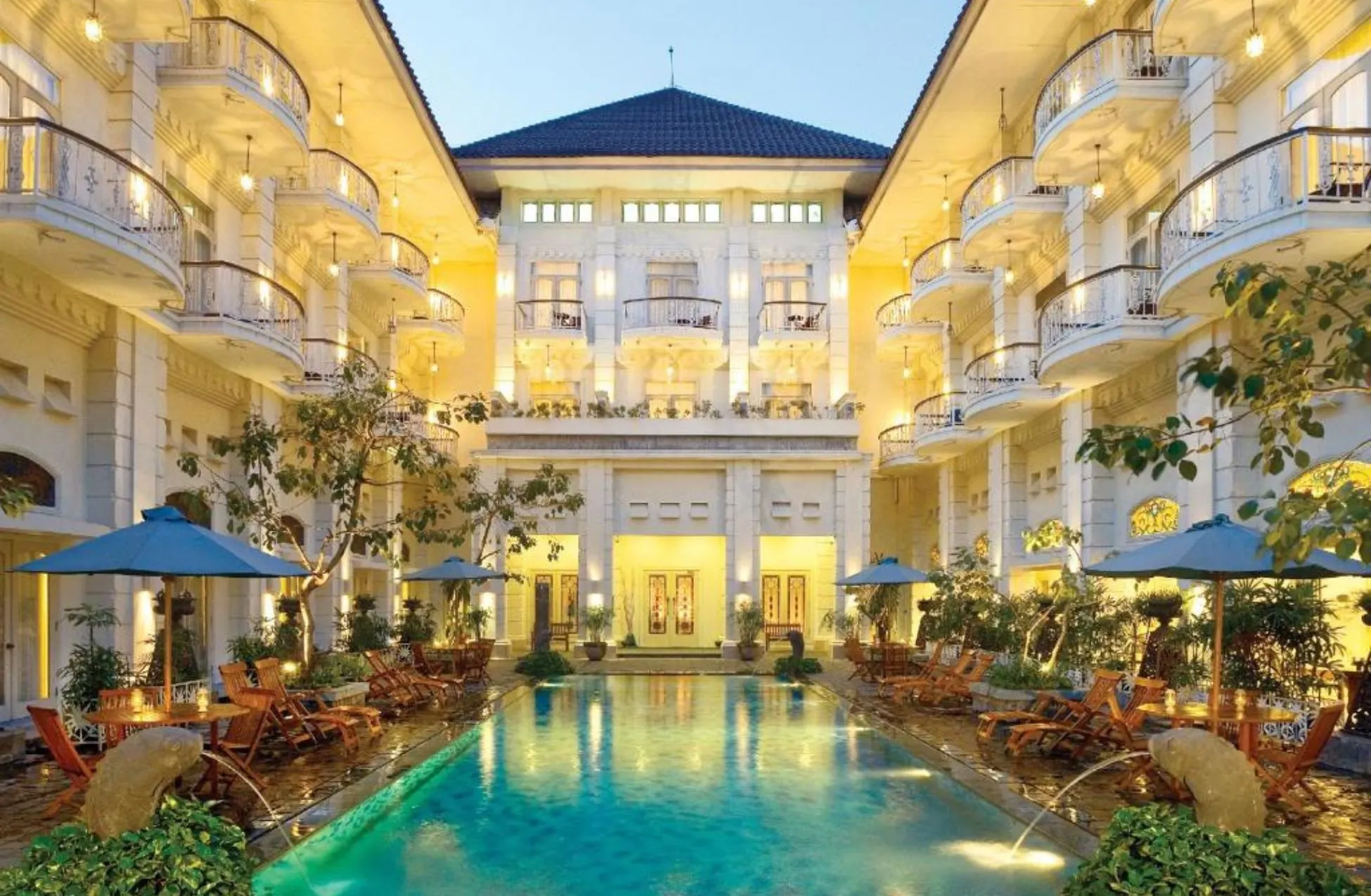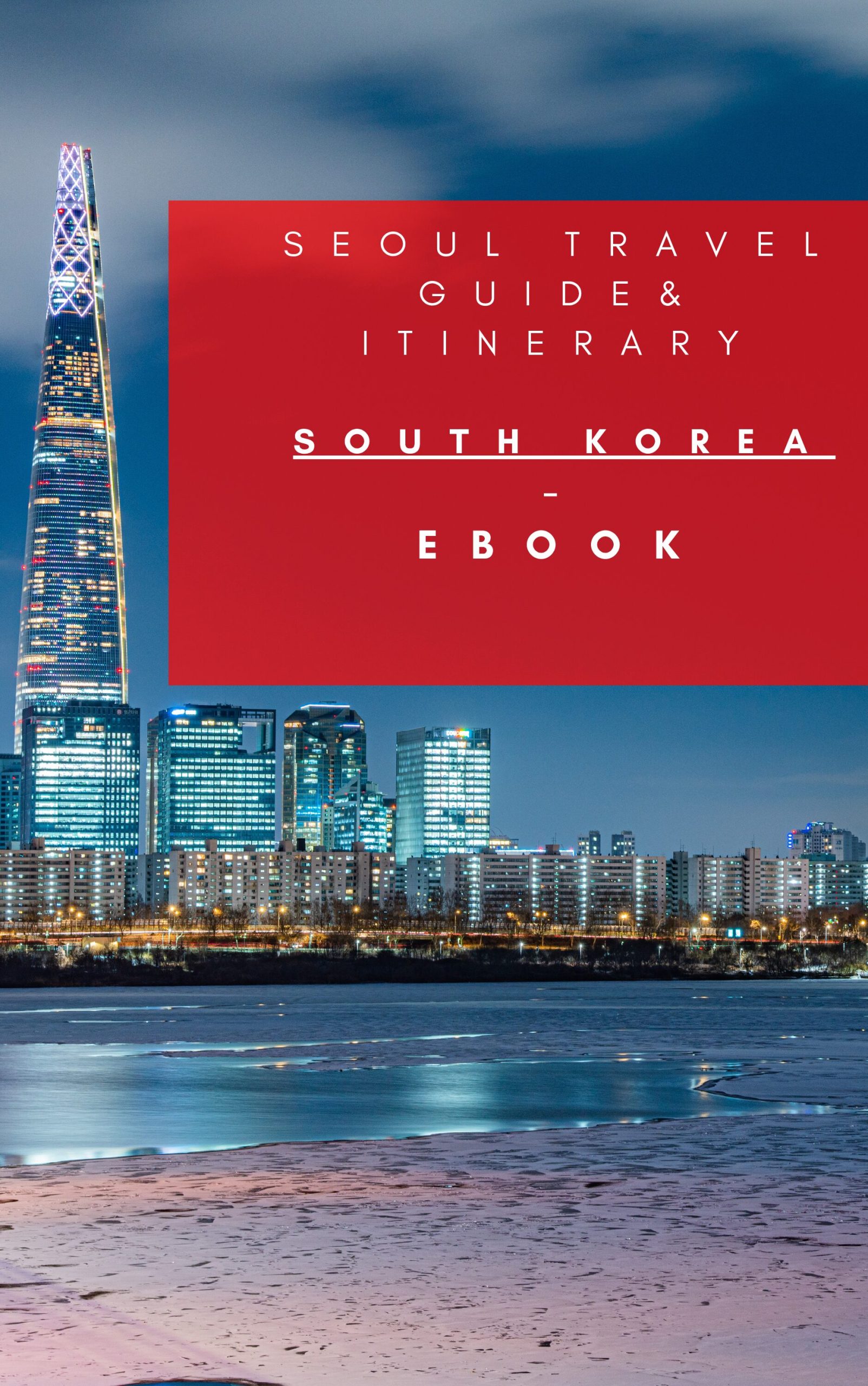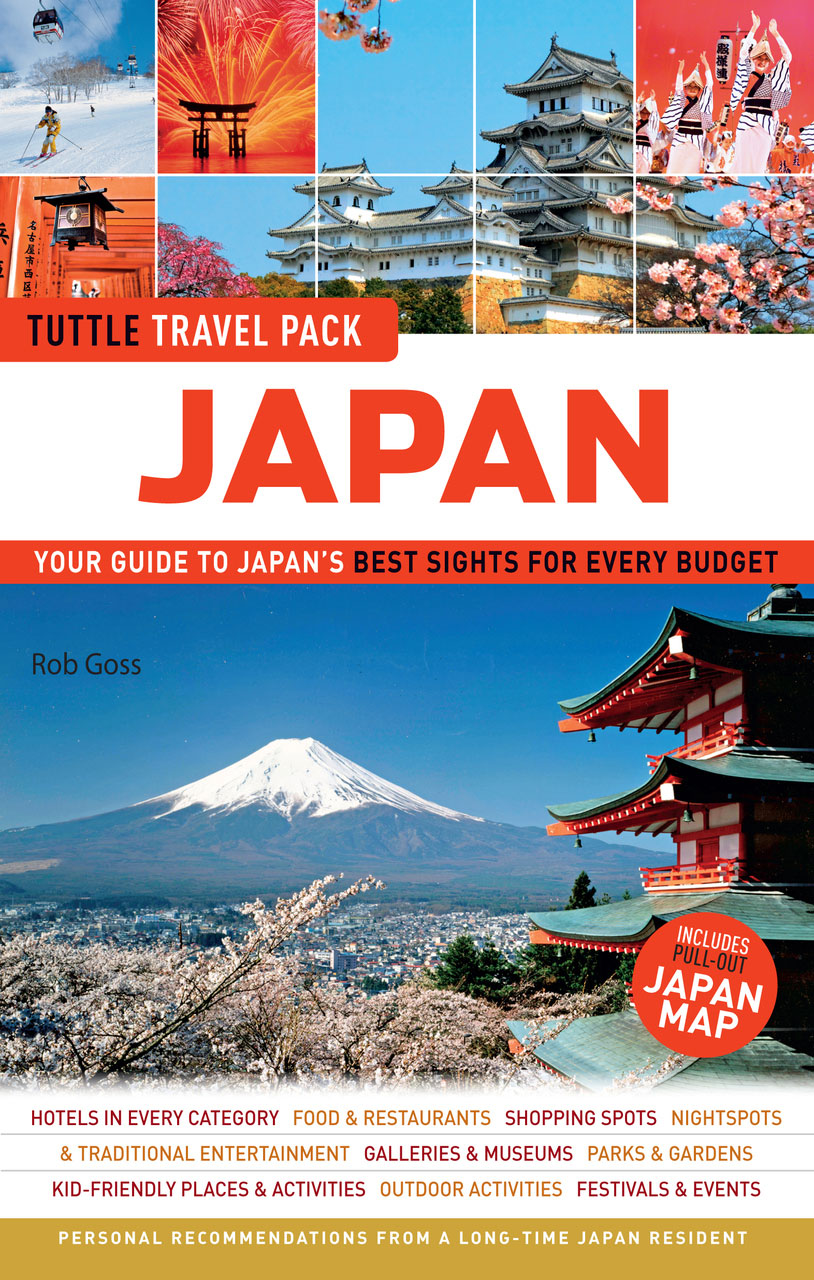
Yogyakarta, the soul of Java, is a city steeped in ancient traditions, vibrant arts, and spiritual grandeur. More than just a destination, it’s an experience that whispers tales of sultans, ancient kingdoms, and the enduring spirit of Indonesian culture. Nestled on the southern coast of Java, its allure lies in its potent blend of historical landmarks, artistic expression, and a welcoming warmth that envelops every visitor. For those seeking to immerse themselves in this captivating city, choosing the right hotel is paramount to unlocking its magic. This article delves into the heart of Yogyakarta, exploring its rich history, iconic attractions, essential travel tips, the ideal times to visit, and, of course, the crème de la crème of its accommodations, alongside culinary delights and seamless transportation.
A Glimpse into Yogyakarta’s Storied Past:
Yogyakarta’s history is inextricably linked to the Mataram Sultanate, a powerful Javanese kingdom that flourished in the 16th and 17th centuries. The city’s current iteration, the Special Region of Yogyakarta (DIY), was established in 1950 as a testament to its unique status and the hereditary reign of its Sultan. This royal lineage imbues Yogyakarta with an aura of nobility, evident in the grandeur of the Sultan’s Palace (Kraton) and the enduring traditions that continue to shape its cultural landscape. From the whispers of ancient empires to the resilience shown during times of political upheaval, Yogyakarta’s history is a living tapestry woven into its very fabric.
Related Articles about Yogyakarta’s Royal Embrace: A Connoisseur’s Guide to its Top Hotels and Enchanting Treasures:
- Argentina: A Tapestry of Wonders – Unveiling its Best Tourist Attractions
- Qatar: A Jewel of the Arabian Peninsula – Your Ultimate Guide to Unforgettable Experiences
- Unveiling the Majesty: A Guide to the Best Tourist Attractions in the United Kingdom
- Germany: A Tapestry of History, Culture, and Breathtaking Beauty
- Mexico: A Tapestry of Ancient Wonders, Vibrant Culture, and Sun-Kissed Shores
Unveiling Yogyakarta’s Main Attractions:
The true essence of Yogyakarta lies in its captivating attractions, each offering a unique window into its soul.
- Borobudur Temple: A UNESCO World Heritage Site and one of the world’s largest Buddhist temples, Borobudur is a breathtaking testament to ancient Javanese artistry and spirituality. Its colossal stone structure, adorned with intricate carvings and hundreds of Buddha statues, offers a profound sense of peace and wonder, especially at sunrise.
- Prambanan Temple: This magnificent Hindu temple complex, also a UNESCO World Heritage Site, is dedicated to the Trimurti – Brahma, Vishnu, and Shiva. Its soaring spires and intricate reliefs depicting the Ramayana epic are a spectacle of architectural brilliance and religious devotion.
- Sultan’s Palace (Kraton Ngayogyakarta Hadiningrat): The heart of Yogyakarta, the Kraton is a sprawling complex that serves as the residence of the Sultan and his family. Visitors can explore its museums, courtyards, and halls, gaining insights into Javanese royal life, art, and traditions.
- Taman Sari (Water Castle): Adjacent to the Kraton, Taman Sari is a fascinating former royal garden and bathing complex. Its intricate network of pools, underground tunnels, and hidden chambers offers a glimpse into the private lives of the sultans and their consorts.
- Malioboro Street: The pulsating artery of Yogyakarta, Malioboro Street is a vibrant pedestrian mall buzzing with activity. Here, you’ll find a kaleidoscope of street vendors selling batik clothing, traditional crafts, souvenirs, and an array of delicious local snacks.
- Mount Merapi: The most active volcano in Indonesia, Mount Merapi, looms majestically over Yogyakarta. While active, it offers breathtaking views and opportunities for adventurous jeep tours and hiking excursions to its slopes, providing a dramatic natural backdrop to the city.
- Ubud Monkey Forest (though geographically in Bali, it shares a similar cultural resonance with Yogyakarta’s artistic spirit and is often considered a similar cultural draw for those seeking nature and spiritual connection). Correction: While the Ubud Monkey Forest is a significant attraction in Bali, it is not located in Yogyakarta. For Yogyakarta, a more relevant natural attraction would be the caves and natural beauty found in the surrounding areas, or specific nature parks.
Navigating Yogyakarta: Essential Travel Tips:
To ensure a smooth and enriching journey, keep these practical tips in mind:
- Currency: The Indonesian Rupiah (IDR) is the official currency. ATMs are widely available, and credit cards are accepted in most hotels and larger establishments.
- Language: Bahasa Indonesia is the official language, but English is widely understood in tourist areas. Learning a few basic Indonesian phrases like "Terima kasih" (thank you) and "Sama-sama" (you’re welcome) will be greatly appreciated.
- Dress Code: Modest attire is recommended, especially when visiting religious sites. Lightweight, breathable clothing is ideal for the tropical climate.
- Bargaining: Bargaining is customary in markets and with street vendors. Be polite and negotiate respectfully.
- Hydration: Drink plenty of bottled water to stay hydrated in the humid climate.
- Sun Protection: Use sunscreen, wear a hat, and sunglasses to protect yourself from the sun.
- Respect Local Customs: Be mindful of local customs and traditions, particularly when interacting with elders or visiting religious sites.
- Visa Requirements: Check the visa regulations for your nationality before traveling to Indonesia.
The Best Time to Visit Yogyakarta:
Yogyakarta experiences a tropical climate with two main seasons:
- Dry Season (May to September): This is generally considered the best time to visit. The weather is sunny, with lower humidity and minimal rainfall, making it ideal for outdoor exploration and sightseeing.
- Rainy Season (October to April): While it can rain, the showers are often brief and intense, usually occurring in the afternoon or evening. The landscape is lush and green during this period, and there are fewer crowds. Prices for accommodation might also be slightly lower.
Yogyakarta’s Top Hotels: A Blend of Luxury and Local Charm
Yogyakarta offers a diverse range of accommodations, from opulent five-star establishments to charming boutique hotels and budget-friendly guesthouses. Here are some of the top hotels that encapsulate the city’s essence:
1. The Phoenix Hotel Yogyakarta – MGallery by Sofitel:
- History & Ambiance: Steeped in colonial charm, The Phoenix Hotel Yogyakarta is a heritage property that seamlessly blends old-world elegance with modern luxury. Originally built in the 1920s, it was once a hub for colonial elite and has been meticulously restored to its former glory. The architecture itself tells a story, with its grand facade and classic Javanese design elements.
- Accommodation: Offers a range of beautifully appointed rooms and suites, many featuring balconies with garden or city views. Expect plush furnishings, classic décor, and modern amenities.
- Amenities & Services: Boasts a stunning outdoor swimming pool, a well-equipped fitness center, a luxurious spa offering traditional Javanese treatments, and multiple dining options. Their signature restaurant, Paprika, offers a delightful fusion of international and local cuisine.
- Location: Strategically located within easy reach of Malioboro Street and the Kraton, making it an excellent base for exploring the city’s cultural heart.
- Why it’s Top-Tier: The Phoenix Hotel is a sanctuary of refined luxury, offering a unique historical experience alongside impeccable service. It’s perfect for travelers who appreciate history, elegance, and a tranquil escape.
2. Hyatt Regency Yogyakarta:
- History & Ambiance: While not a heritage property in the same vein as The Phoenix, the Hyatt Regency Yogyakarta offers a resort-like experience with a strong connection to its Javanese surroundings. The expansive grounds are designed to reflect local aesthetics, with lush gardens and traditional architectural touches.
- Accommodation: Features spacious rooms and suites, many with balconies overlooking the verdant gardens or the Code River. The décor is a tasteful blend of contemporary comfort and subtle Javanese influences.
- Amenities & Services: Its standout feature is its magnificent lagoon-style swimming pool, complete with a waterslide and swim-up bar. The hotel also offers a championship golf course, a comprehensive fitness center, a spa, and a variety of dining venues, including Kemangi, known for its authentic Indonesian flavors.
- Location: Situated a bit further from the city center, offering a more serene environment, but still accessible to major attractions via a short drive.
- Why it’s Top-Tier: The Hyatt Regency is ideal for families and those seeking a resort experience with extensive recreational facilities. Its commitment to service and its expansive grounds provide a relaxing and enjoyable stay.
3. The Manohara Hotel Yogyakarta:
- History & Ambiance: Nestled within the grounds of the Borobudur Temple complex, The Manohara Hotel offers an unparalleled experience for those wishing to immerse themselves in the magic of this UNESCO World Heritage Site. The ambiance is serene and spiritual, with breathtaking views of the temple.
- Accommodation: Offers comfortable rooms and suites with simple yet elegant décor, designed to complement the spiritual surroundings. Many rooms offer direct views of Borobudur.
- Amenities & Services: While more modest in terms of extensive amenities compared to city-based luxury hotels, its key offering is its prime location. It provides exclusive access to the Borobudur Temple for sunrise and sunset viewing, a truly unforgettable experience. They also offer a restaurant serving local and international dishes.
- Location: Its unique selling proposition is its location within the Borobudur complex, offering an immersive and convenient experience for temple exploration.
- Why it’s Top-Tier: For those prioritizing proximity and an intimate connection with Borobudur, The Manohara Hotel is an exceptional choice. It offers a tranquil retreat after a day of exploring the temple.
4. Tentrem Hotel Yogyakarta:
- History & Ambiance: A relatively newer entrant to Yogyakarta’s luxury scene, Tentrem Hotel exudes modern sophistication with a Javanese touch. The hotel’s design incorporates clean lines and elegant furnishings, creating a stylish and contemporary ambiance.
- Accommodation: Features chic and spacious rooms and suites, equipped with all the modern amenities for a comfortable stay. The décor is refined and understated.
- Amenities & Services: Boasts a large outdoor swimming pool, a well-equipped fitness center, a luxurious spa, and several acclaimed dining venues. Their signature restaurant, Dusun, is renowned for its exquisite Indonesian cuisine.
- Location: Centrally located, offering convenient access to Malioboro Street, the Kraton, and other city attractions.
- Why it’s Top-Tier: Tentrem Hotel is perfect for travelers seeking contemporary luxury and excellent dining options in a prime city location. Its sophisticated design and attentive service make it a standout choice.
5. Sheraton Mustika Yogyakarta Resort & Spa:
- History & Ambiance: Situated on the outskirts of the city, the Sheraton Mustika offers a tranquil escape with expansive grounds and a focus on relaxation. The ambiance is one of serene resort living, with lush tropical gardens and traditional Javanese architectural elements.
- Accommodation: Offers a range of rooms and villas, many with private balconies or terraces overlooking the gardens or swimming pool. The décor is comfortable and inviting, with subtle local influences.
- Amenities & Services: Features a large outdoor swimming pool, a dedicated spa offering a range of treatments, tennis courts, and a fitness center. Their dining options include a restaurant serving both local and international cuisine.
- Location: Located a bit further from the city center, offering a peaceful retreat. It’s well-suited for those who want to relax and unwind, with easy access to Mount Merapi for excursions.
- Why it’s Top-Tier: The Sheraton Mustika is a great choice for families and couples seeking a resort-style experience with ample space for relaxation and recreation, away from the city’s hustle and bustle.
Beyond the Top Hotels: Other Notable Stays:
- Hotel Tentrem: (Already listed as Tentrem Hotel Yogyakarta, as they are the same)
- Grand Aston Yogyakarta: A modern hotel offering comfortable rooms and good amenities in a central location.
- Four Seasons Hotel Yogyakarta: (While Four Seasons is a renowned luxury brand, it’s important to verify its presence and specific offerings in Yogyakarta, as they may operate under different branding or be a different hotel chain in that region. A quick search reveals there isn’t a Four Seasons directly branded as such in Yogyakarta. This might be a misunderstanding or a reference to a similar caliber hotel.) Correction: There is no Four Seasons Hotel in Yogyakarta. The luxury market is primarily served by the hotels listed above and others like the Royal Ambarrukmo.
- Royal Ambarrukmo Yogyakarta: A historic hotel with a rich legacy, offering a blend of classic charm and modern comfort.
A Taste of Yogyakarta: Local Food Delights
Yogyakarta’s culinary scene is as rich and diverse as its cultural heritage. Prepare your taste buds for an unforgettable gastronomic journey:
- Gudeg: The undisputed king of Yogya cuisine. This sweet and savory jackfruit stew, slow-cooked with coconut milk and spices, is a must-try. It’s often served with rice, ayam goreng (fried chicken), and krecek (spicy beef skin crackers).
- Sate Klatak: A unique take on satay, where skewers of lamb are grilled over charcoal. The meat is often marinated in a savory sauce and served with a flavorful broth.
- Nasi Goreng: Indonesia’s ubiquitous fried rice, but in Yogyakarta, it’s often prepared with a distinct local twist, featuring a slightly sweeter flavor profile.
- Bakmi Jawa: Javanese noodles, either fried (bakmi goreng) or in a soup (bakmi godhog), are a comforting and flavorful dish.
- Angkringan: These humble street-side stalls are an iconic part of Yogya’s food culture. They offer a wide variety of affordable snacks, rice dishes, and drinks, creating a lively and communal dining experience.
- Es Dawet: A refreshing traditional drink made with coconut milk, palm sugar, and pandan jelly.
Transportation Options in Yogyakarta:
Getting around Yogyakarta is relatively easy and offers various options to suit different budgets and preferences:
- Taxis: Metered taxis are readily available and a convenient option for getting around the city. Ride-hailing apps like Gojek and Grab are also very popular and often more affordable.
- Andong (Horse-drawn Carriage): A charming and traditional way to explore certain areas, particularly around Malioboro Street and the Kraton. It offers a unique, albeit slower, perspective.
- Becak (Pedicab): A three-wheeled bicycle taxi, a quintessential Yogya experience. It’s great for short distances and offers a more intimate way to see the city.
- Rental Cars/Motorcycles: For those who prefer independence, renting a car or motorcycle is an option. However, be aware of the local traffic conditions.
- Trans Jogja Bus: The city operates a public bus system, Trans Jogja, with several routes covering key areas. It’s an affordable option for budget travelers.
- Walking: Many of Yogyakarta’s attractions, especially within the city center, are within walking distance of each other, allowing for a more immersive experience.
Conclusion:
Yogyakarta is a city that captivates the senses and nourishes the soul. From its ancient temples that whisper tales of bygone eras to its vibrant streets alive with artistic expression and culinary delights, it offers an unparalleled journey into the heart of Indonesian culture. By choosing to stay in one of its exceptional hotels, you not only secure a comfortable abode but also a gateway to experiencing the true magic of this enchanting city. Whether you seek the grandeur of colonial history, the serenity of temple grounds, or the vibrant pulse of urban life, Yogyakarta’s top hotels stand ready to offer you a royal embrace, ensuring your memories of this Javanese gem are as rich and enduring as its legacy.








